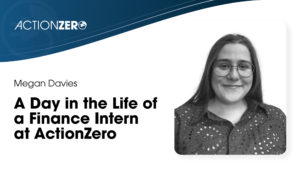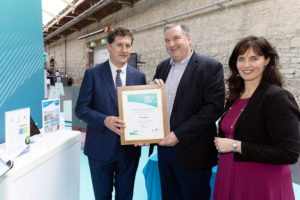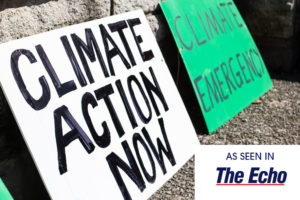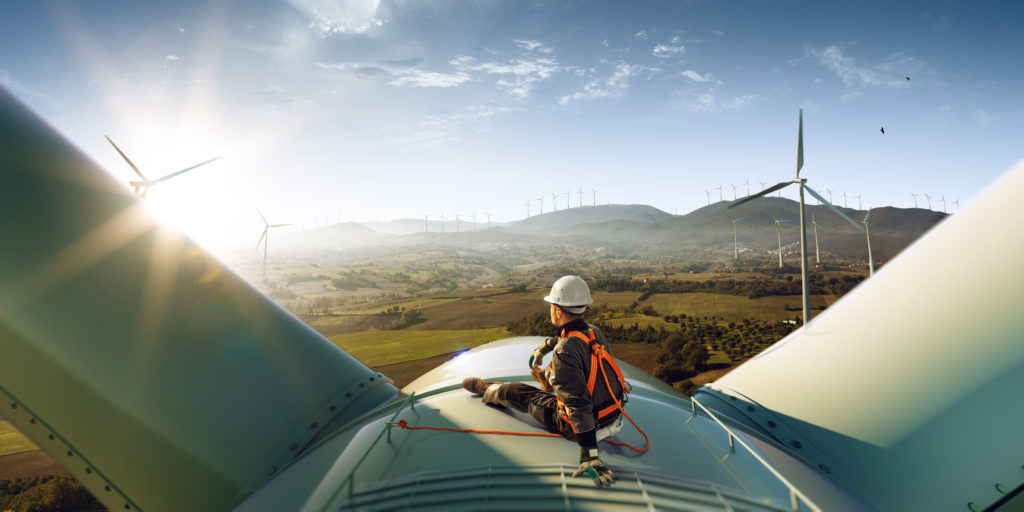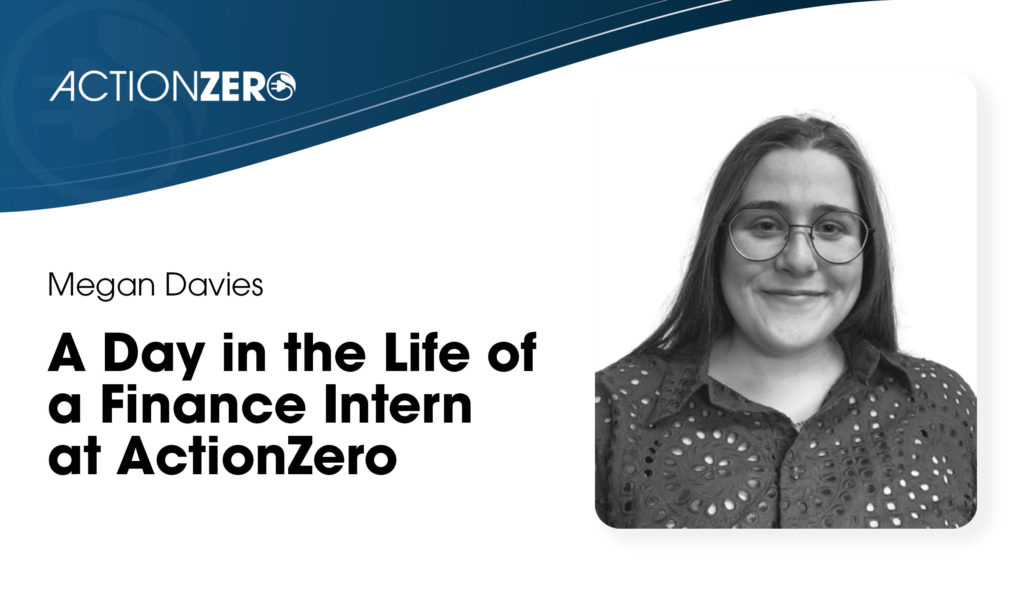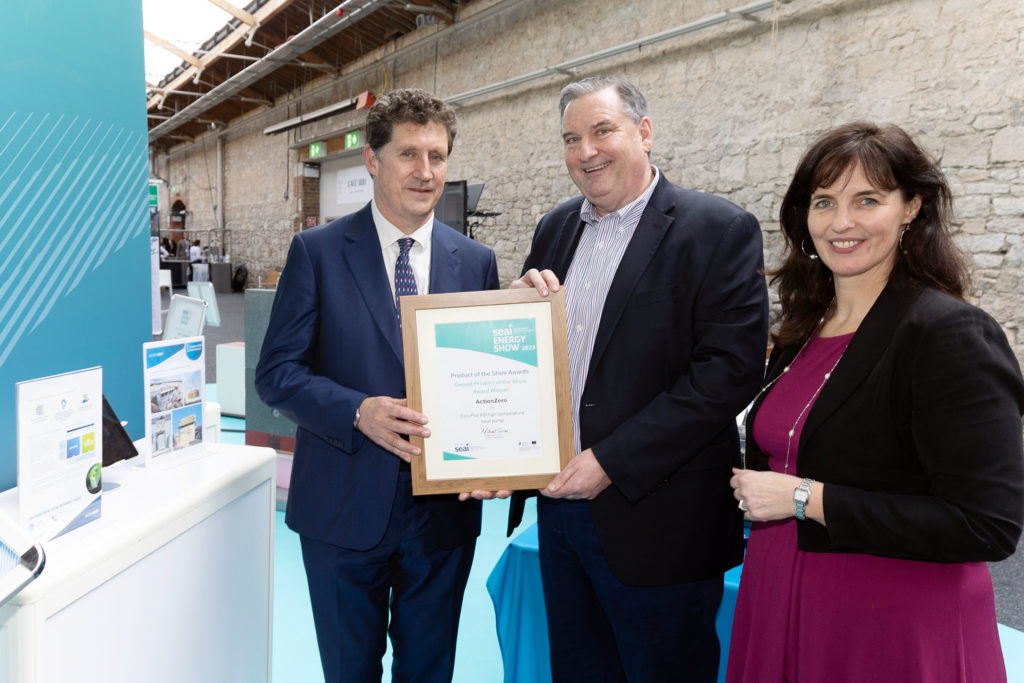An opinion editorial from Action Zero CEO Denis Collins on why we should never waste a good crisis – as seen in The Evening Echo.
Never waste a good crisis – as the saying goes. Unfortunately, we are.
And this is the motherlode of crises but also so of opportunity. I’m talking about climate action.
This is a moment to seize and lead that could reap transformational outcomes for Ireland inc and generations to come – commercially, socially, academically.
Examples include thousands of regional green jobs, demand for STEM professionals and highly skilled craftspeople, new clean energy sources, manufacturing, exports, FDI green brand, large business working closely with indigenous business for the next two to three decades.
And equally important, making our planet a better place.
It’s impossible not to be consumed by the scale of global impact. Majestic Californian redwoods in flames, half a billion creatures killed in Australian bushfires, “once in a generation” flooding occurring every three to five years, many parts of the world on the way to becoming uninhabitable.
These are the consequences of many things, but nothing comes close to the damage visited on the planet by carbon emissions.
The Boomer generation has seen a six-fold global increase in CO2 emissions in their lifetime. Nature’s capacity for absorbing and sequestering excess levels of CO2 emissions has long since been overwhelmed.
Industry, government, and the general population are all part of this as consumers, businesses and policy decision makers. It’s us.
The good news is that the world seems finally ready to act on a meaningful scale. Evidence of that new mindset is to be found in the flight of capital out of fossil fuels.
Activist investors and legislators are forcing the issue. Among private and sovereign wealth funds, family offices, banks, pension funds, retail investors, cities and states, corporations – there have been many significant commitments of capital allocation.
A range of financial instruments including grants, carbon taxes and credits, tax-exempt green bonds, ESG-focussed funds and a range of others show real evidence of corporate and governmental intent. There’s a deficit of actionable projects by comparison with the value of those funds.
Put in simpler terms, there’s lots of money available but we don’t quite know yet what to do with it. Nonetheless, the change in the funding environment is an important precursor to large-scale action.
It’s a start, but it’s too slow, and we need to accelerate. Ireland Inc faces our part in this challenge.
The Government’s Climate Action Plan 2019 makes the sobering declaration that “Ireland is way off course” and faces many challenges in meeting our commitments. The recently published climate bill enshrines in law our national commitment to reach net zero by 2050, with intermediate commitment to a 51% emissions reduction by 2030, 7% per year target.
The scale of the challenge ahead of us was brought into stark focus in recent weeks with the publication of the EPA’s analysis on GHG emissions for 2020 – a 3.6% reduction in emissions may seem like progress, but the fact this was in the middle of a global pandemic with greatly reduced levels of economic activity puts our 7% per year target in even sharper focus.
When it comes to climate action, Ireland has a track record of lagging far behind our European neighbours – we have missed our 2020 emissions reduction targets, and most of our renewable energy targets, with heat and transport posing a huge challenge.
When it comes to heat, we fell well short of our 2020 goal of 12%, with only 6.3% realised. As with any great movement, it takes time for the systems to fit together and streamline. The problem is that we don’t have time.
Decarbonising heat is the motherlode within the motherlode.
It horizontally crosses industry and consumer massively, and solving this problem will make significant impact to CO2 emissions reduction. It’s vital we take this on and deploy joined-up thinking and solutions that remove fossil fuels – now.
Technology will play a crucial role. Are we collaborating effectively, supporting solutions that are currently available to decarbonise heat? I think not.
Just as the climate crisis was created by many actions over a sustained period, improvements will come from a series of actions that combine to reverse the damage.
Some will be large scale, policy-driven initiatives driven by governments and major corporations. Planning, regulatory frameworks will need to move more quickly.
Examples include access to grid capacity for electrification, clustering opportunities for offshore wind, green hydrogen, and sources of large demand such as data centres need to be close to such clusters. Areas like West Cork are an example. We need to plan/work smarter.
Smaller initiatives will have no less importance when combined. It all counts, and must accelerate.
Every action, no matter how small, that tilts the balance in the right direction should be embraced, copied and proliferated. If much of the damage was suffered through millions of ill-considered actions over time, much of the remediation can come from small actions carried out by enough people.
The financial services industry needs to step up. Government also needs to enhance the grant process. For example, we need to accelerate the speed of grants to industry to enable solutions. Similar to the financial services industry, the grant process needs to align to available decarbonising heat solutions/technologies.
Simply put, we need grants issued more quickly, innovative funding arrangements that aren’t rooted in 10-year old thinking, policy frameworks with rapid action, relevant information campaigns.
These moments don’t come along very often.
Let’s not miss this incredible opportunity but also recognise that failure to deliver carries sombre consequences.
Ireland has the ethos, skill, passion and track record to become a global leader.
This opportunity matches our national psyche – monumental challenge to overcome, sustained commitment, global network and impact. Punching above our weight. Sound familiar? It’s us.
It’s a perfect storm moment – are we ready to seize it?


